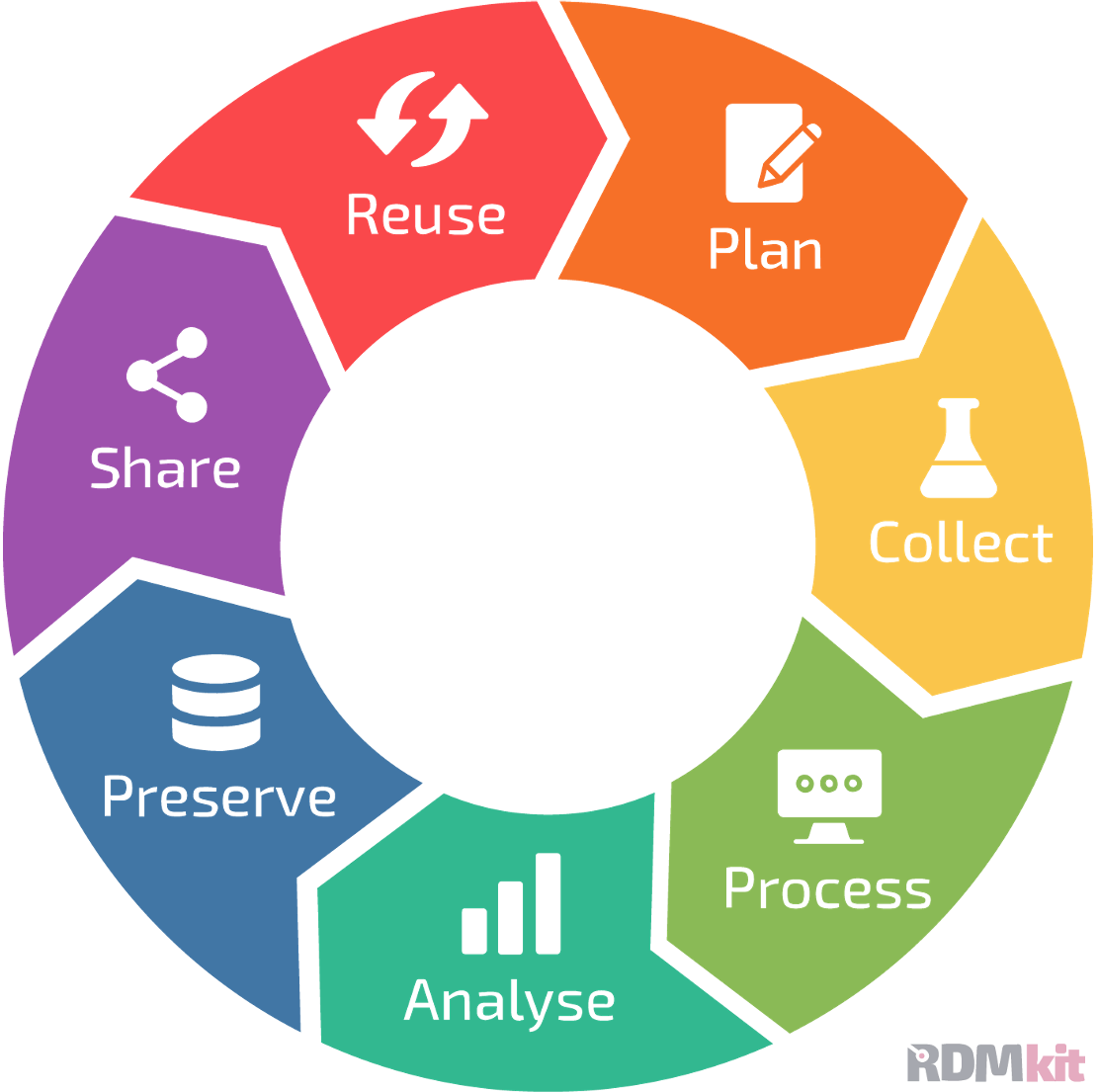Research Data Management (RDM) encompasses the practices, processes, and tools used to organize, store, preserve, and share research data throughout its lifecycle.
RDM has become a key aspect of good scientific practice, improving research rigor and reproducibility while ensuring compliance with ethical and legal frameworks. RDM facilitates meeting funders' Open Science policies and offers researchers increased visibility and enhanced collaboration opportunities.
Note: Research Data Management often occurs within an organisational context with connected funder and publisher policies. This guide aims to help you learn about the key concepts of data management. If you find any conflicting advice, your organisation's or funder's policies always take precedence.
The diagram below illustrates the key stages of the data lifecycle. Understanding these stages is key to managing research data effectively.

Explore more
Data preservation and sharing
Best practices for preserving and sharing research data throughout its lifecycle
Data formats
Guidelines for selecting appropriate data formats for long-term preservation and accessibility
Persistent Identifiers (PID)
Introduction to Persistent Identifiers and its importance on research data preservation
Regulations and policies
International and national regulations affecting research data preservation
Trusted repositories
Guidelines for selecting and using trusted repositories for research data storage
Contact us
For questions, please email rdarc@lnds.lu